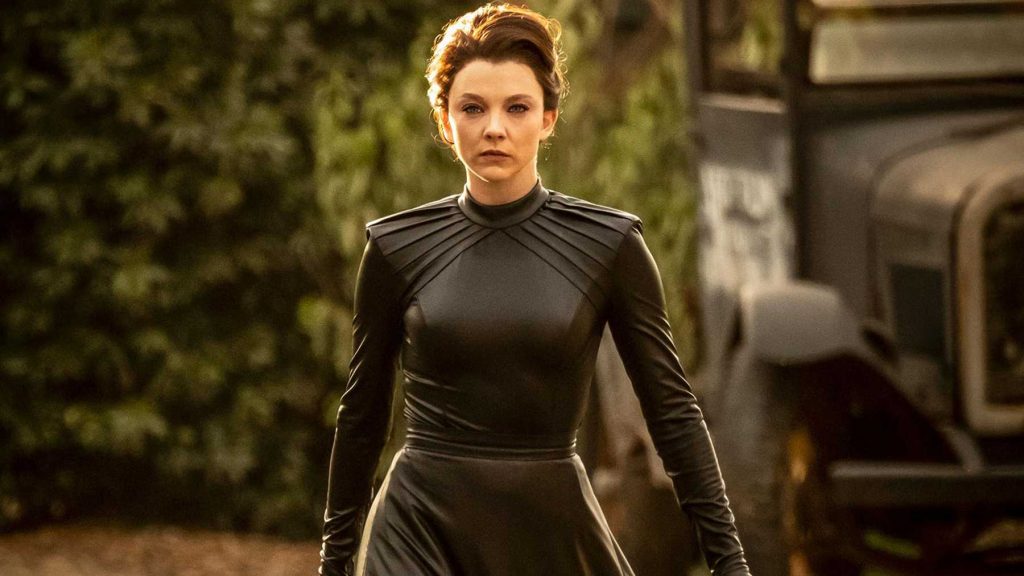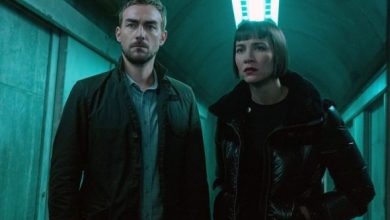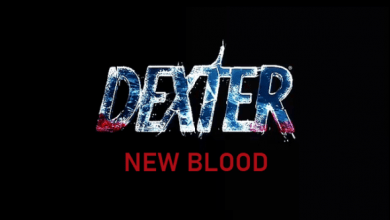How Natalie Dormer Kept Her 4 Different Roles Straight in ‘Penny Dreadful: City of Angels’

If Natalie Dormer did nothing in “Penny Dreadful: City of Angels” but play the dark goddess Magda, the British actress would have had a juicy role as a supernatural force intent on pushing the human race into turmoil in 1930s Los Angeles. But one of Magda’s special powers is that she can assume any form she wishes — so in addition to appearing on screen as Magda, Dormer also gets to play three of her human iterations in the mousy but scheming political aide Alex, the German-American housewife Elsa and the zoot-suited gang leader Rio.
“For any actor, I think your ears prick up when you get offered the chance to play four roles for the price of one — how many times is that going to happen in your career?” Dormer said of her reaction when she got the script from creator John Logan. “I was intrigued by it, and excited by the idea of this workout both physically and mentally.”

But when she was working out how she’d play Magda’s three human forms, “Game of Thrones” vet Dormer said she didn’t dwell on the fact that they were all versions of the goddess. “I came at the iterations from a very technical perspective, because I wanted give them clear lines of identity — physicality and voice and accent and so forth,” she said. “But when it comes to psychology, John and I realized very quickly that the only way to play Elsa, Alex and Rio is as fleshed-out human individuals. You don’t get that wink at the camera, because we found it undermined the scenes that those individuals are in.”
Asked who was the most fun to play, she can’t single out just one of the characters. “My personal favorites would be a tossup between Alex and Rio,” she said. “Alex is just a joy because in the way she looks and moves, she’s just more removed from me than the others. And I just had a lot of fun with Michael Gladis (who plays a scheming politician Alex manipulates). I think we found a humor in that relationship that neither of us were anticipating, because it’s pretty dark.
“And then Rio — obviously the zoot suit is a divine invention I think all human beings should wear,” she continued. “It’s comfortable and practical, so sexy, very stylish And to be able to do stuff like that dance scene in Episode 3 was a real bit of fun as well.”
On most days, Dormer said, she would only be asked to play one of her quartet characters. But there were exceptions. “There were a couple of days when I had to take two within the same day,” she said. “That’s when the hair and makeup trailer is really your Chrysalis. They have to take away one character and then start the process of the other characters from scratch, which can take up to three hours of sitting. So you take advantage of that mental time as well. And I was changing between American accents and a German accent, and obviously a dialect coach would come and sit with me because you’re using different muscles in your mouth. Ordinarily, if I was doing an American accent, I would stay in an American accent entire time. But in this job is there was no point in that, because I was jumping around so much.”
Set in 1938, the series deals with many of the issues of Southern California in that era — but at the same time, it delves into the scapegoating of immigrants, the rise of white supremacists and other issues that hit home in 2020.
“When I took the job at the beginning of 2019, it was more about reconciling my own issues with a Brexiting Britain and Trump’s America and polarization on the political spectrum,” she said. “But it’s absolutely incredible what happened in the nine months after I took the job — the demonization of the other, the demagoguery, the danger of losing a conversation in the central ground.
“I think good genre and good period drama is always about contemporary issues,” she said. “So other than the gift of playing four roles, the other thing that intrigued me was processing those political and social pains that we have at the moment — even if that meant playing the antagonist in order to do so.”





